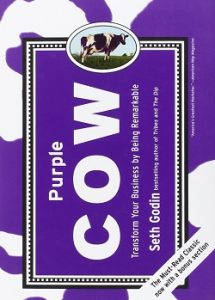[clickToTweet tweet=”HR and talent acquisition could do a better job at self-promotion” quote=”HR and talent acquisition could do a better job at self-promotion.”]
I am not talking about posting articles online about your employee brand to attract talent.
What I am talking about, is that when it comes to publicizing HR’s value and achievements internally, I have and still do find it wanting.
I have seen some great programs and initiatives that HR creates and promotes to the employee population, but not much promotion of its own value to the organization. Maybe HR leadership is concerned that they might be perceived as bragging or that the focus should be on the people and company they support.
I don’t disagree with that, but I also think professionally tooting your own horn (and your team’s) is critical to get buy-in and support to accomplish your goals.
In my humble opinion, based on years of experience doing this, I believe you can strike the right professional balance of raising awareness without being braggadocios. You can be confident without being cocky. You can position value without making it all about you, instead making it about us/we.
Let me give you the details on why I think internal self-promotion is important, some examples on how I tried (and sometimes failed) to promote my own function or an initiative, and how you can, and should as well.
The real challenge is support
One of the hardest things to achieve in a corporate environment is to continually get people to understand and support your agenda and initiatives. I have seen the best plans and strategies fall short because the leader did not do an effective job promoting the value, progress and results to the key internal stakeholders.
If we are being honest with each other, I think you have seen this or experienced this yourself.
We have so much information flying at us from so many different angles it’s hard to remember sometimes why a certain initiative exists and what problem it’s trying to solve. People are busy, people have short memories, and people need to be reminded constantly why are we doing this initiative.
What is most important in your messaging is tying the value and outcome to why it’s important to the stakeholders and the organization.
 The purple cow
The purple cow
You may already be aware of Seth Godin’s book, The Purple Cow. If you have not read it, here is a quote from Forbes about the book:
In his book Purple Cow: Transform Your Business by Being Remarkable, Seth Godin says that ‘The key to success is to find a way to stand out — to be the purple cow in a field of monochrome Holsteins.’
I was lucky enough to stumble across this book years ago, and when I read it a light bulb went off in my head about how I needed to think about standing out from the noise of competing information. If I wanted to get eyeballs on my initiatives, people to understand the value and the progress being made, and ultimately get the support of key stakeholders to help remove roadblocks, I needed to become a Purple Cow myself.
I needed to self-promote (my team), but in a way that cut through the noise and caught people’s attention (eyeballs).
If you have read my articles and advice in the past, you know I like to tell practical stories, not just offer theories, to help connect the dots on how you can make this real yourself.
The story of the garden gnome
 Back in my early Microsoft days I was responsible for a team of sourcers whose primary function was to identify and attract passive talent, and partner with the line recruiters on their harder to fill reqs.
Back in my early Microsoft days I was responsible for a team of sourcers whose primary function was to identify and attract passive talent, and partner with the line recruiters on their harder to fill reqs.
One of the initial challenges we faced was the perception by recruiters that the sourcers were there to take their jobs. Some recruiters also felt their own sourcing skills were being slighted because they were told to partner with a sourcer vs. finding all the candidates themselves.
Let’s just say in the initial stages there was a little us vs. them going on.
While looking to build trust and credibility, the team needed to show progress and value to the recruiters and leaders. I also needed to think how to accelerate this outcome as Microsoft folk are not the most patient people in the world :-).
So, I dreamed up the idea that for every first hire a recruiter made in partnership with the sourcer we would give them a garden gnome they could place in their office space. We even wrote on the gnome’s hat, “I’m a CST hire.” CST meaning Central Sourcing Team.
My logic was that when other recruiters and leaders came by for a chat they would see this strange one-foot little garden gnome sitting on the recruiter’s desk and, because it stood out as being a little odd in a work environment, they’d ask:
What is that, where did you get it and why is it here?
I had many a recruiter and leader tell me I was a little odd in my approach, but at the same time it achieved what we were looking for: It created some buzz, it got people’s attention and helped put a focus on the value of helping support recruiters with candidates for their hard to fill requisitions.
Purple cow promotion
See the purple cow here? That’s from a more recent occasion when I wanted to get my whole recruiting organization to think creatively to solve old recruiting business problems. I bought multiple copies of the Purple Cow book and gave one to every leader on my team. We also gave a Purple Cow award each month to a recruiter who came up with the most creative solution to an old problem. They would proudly display it in their cubicle for the world to see.
I have put unique recruiting scorecards together in the past that tell the story in ways that promote value. I’m a big fan of letting the data do the talking. But to stand out and get eyeballs and interest, still requires some clear thinking on how to make it simple, easy and quick for the recipient to understand. What is the problem we are trying to solve, how are we making progress against the plan, and ultimately what is the value we/you/us will get from achieving those goals?
My mind has now been trained to think about how to ensure what needs to be messaged and communicated gets the necessary and maximum attention it needs. How can I/we stand out? How can we get eyeballs? How can I/we make this sticky and memorable?
It’s now part of my DNA. Make it yours.
Be a unique storyteller
As I stated above, sometimes I get it wrong and I over-engineer my own creativeness. Sometimes I have invested in small pilot initiatives to show executive leadership how the team is willing to try new things to attract talent. Sometimes it does not work, but I am still showing team value by pushing the envelope with something new and different to solve old problems.
Because people have short memories or they fall into the “What have you done for me lately” camp, you must constantly try finding ways to make the audience aware of your value and progress. I’m not suggesting that you should promote every hire or new person onboarded, but be on the constant lookout for those unique stories and situations that are worth leveraging to promote you and your team’s value.
After doing this for so many years, I now have a set of core “go to” creative strategies I use when thinking about the opportunities to effectively promote the team and, yes, even myself when appropriate.
I always do my darndest when I write not to make it like you’re reading another marketing spin article or a pitch veiled in frail content. I want it to be real, just like the story of Mac, the CST Garden Gnome that still sits in my garden today. (Yeah, I took one with me when I left Microsoft ?.)
Every time I look at him, even though he has seen better days, it’s a nice reminder to keep pushing the creative boundaries to self- and team-promote in a professional way and to never stop being a Purple Cow.
